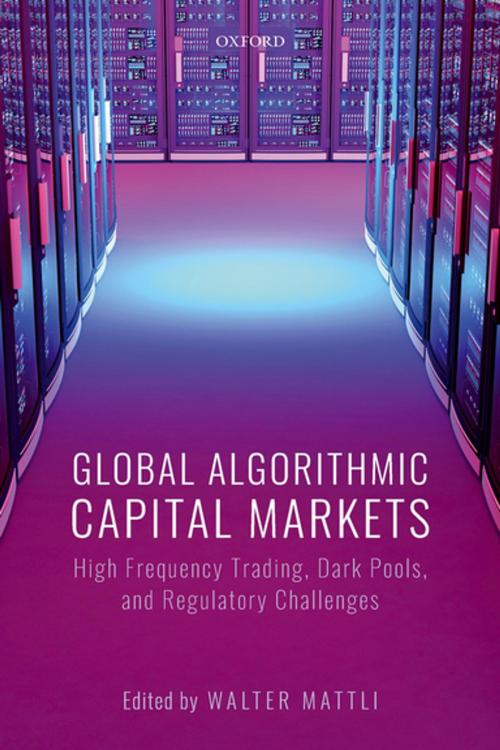Global Algorithmic Capital Markets
High Frequency Trading, Dark Pools, and Regulatory Challenges
Nonfiction, Computers, General Computing, Business & Finance, Economics| Author: | ISBN: | 9780192564887 | |
| Publisher: | OUP Oxford | Publication: | December 17, 2018 |
| Imprint: | OUP Oxford | Language: | English |
| Author: | |
| ISBN: | 9780192564887 |
| Publisher: | OUP Oxford |
| Publication: | December 17, 2018 |
| Imprint: | OUP Oxford |
| Language: | English |
Global capital markets have undergone fundamental transformations in recent years and, as a result, have become extraordinarily complex and opaque. Trading space is no longer measured in minutes or seconds but in time units beyond human perception: milliseconds, microseconds, and even nanoseconds. Technological advances have thus scaled up imperceptible and previously irrelevant time differences into operationally manageable and enormously profitable business opportunities for those with the proper high-tech trading tools. These tools include the fastest private communication and trading lines, the most powerful computers and sophisticated algorithms capable of speedily analysing incoming news and trading data and determining optimal trading strategies in microseconds, as well as the possession of gigantic collections of historic and real-time market data. Fragmented capital markets are also becoming a rapidly growing reality in Europe and Asia, and are an established feature of U.S. trading. This raises urgent market governance issues that have largely been overlooked. Global Algorithmic Capital Markets seeks to understand how recent market transformations are affecting core public policy objectives such as investor protection and reduction of systemic risk, as well as fairness, efficiency, and transparency. The operation and health of capital markets affect all of us and have profound implications for equality and justice in society. This unique set of chapters by leading scholars, industry insiders, and regulators discusses ways to strengthen market governance for the benefit of society at whole.
Global capital markets have undergone fundamental transformations in recent years and, as a result, have become extraordinarily complex and opaque. Trading space is no longer measured in minutes or seconds but in time units beyond human perception: milliseconds, microseconds, and even nanoseconds. Technological advances have thus scaled up imperceptible and previously irrelevant time differences into operationally manageable and enormously profitable business opportunities for those with the proper high-tech trading tools. These tools include the fastest private communication and trading lines, the most powerful computers and sophisticated algorithms capable of speedily analysing incoming news and trading data and determining optimal trading strategies in microseconds, as well as the possession of gigantic collections of historic and real-time market data. Fragmented capital markets are also becoming a rapidly growing reality in Europe and Asia, and are an established feature of U.S. trading. This raises urgent market governance issues that have largely been overlooked. Global Algorithmic Capital Markets seeks to understand how recent market transformations are affecting core public policy objectives such as investor protection and reduction of systemic risk, as well as fairness, efficiency, and transparency. The operation and health of capital markets affect all of us and have profound implications for equality and justice in society. This unique set of chapters by leading scholars, industry insiders, and regulators discusses ways to strengthen market governance for the benefit of society at whole.















